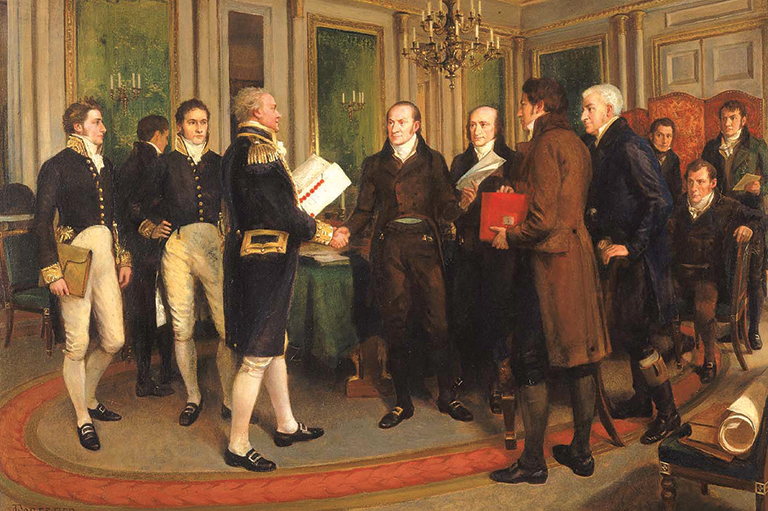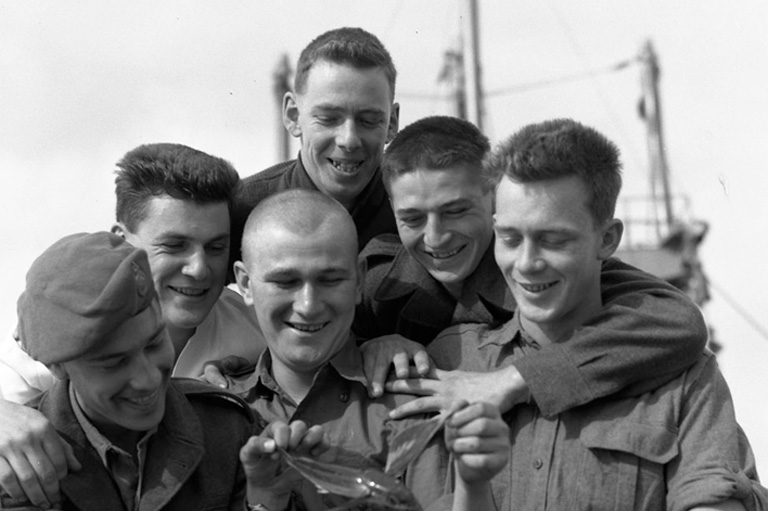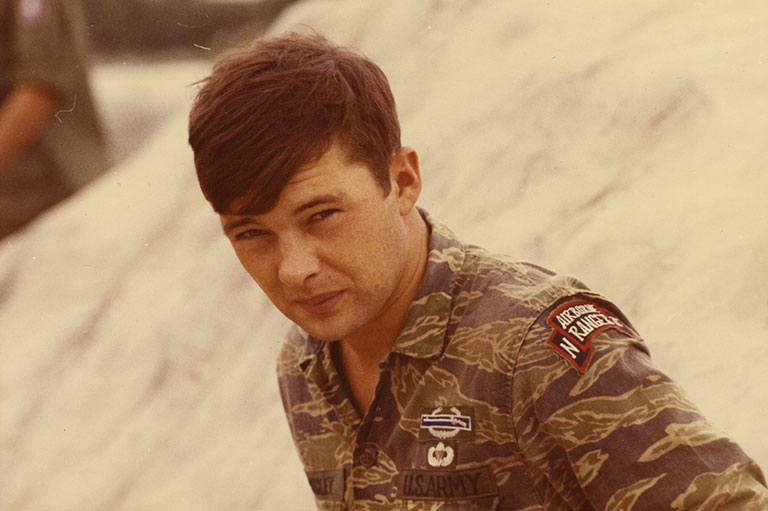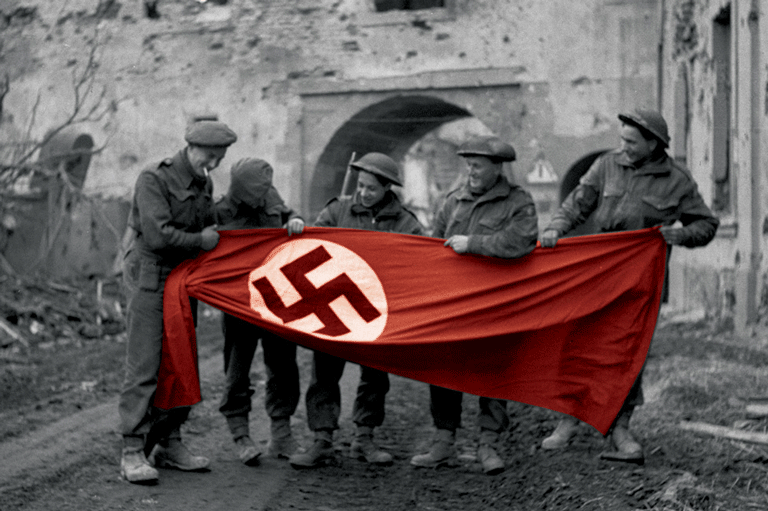Dreams of Home
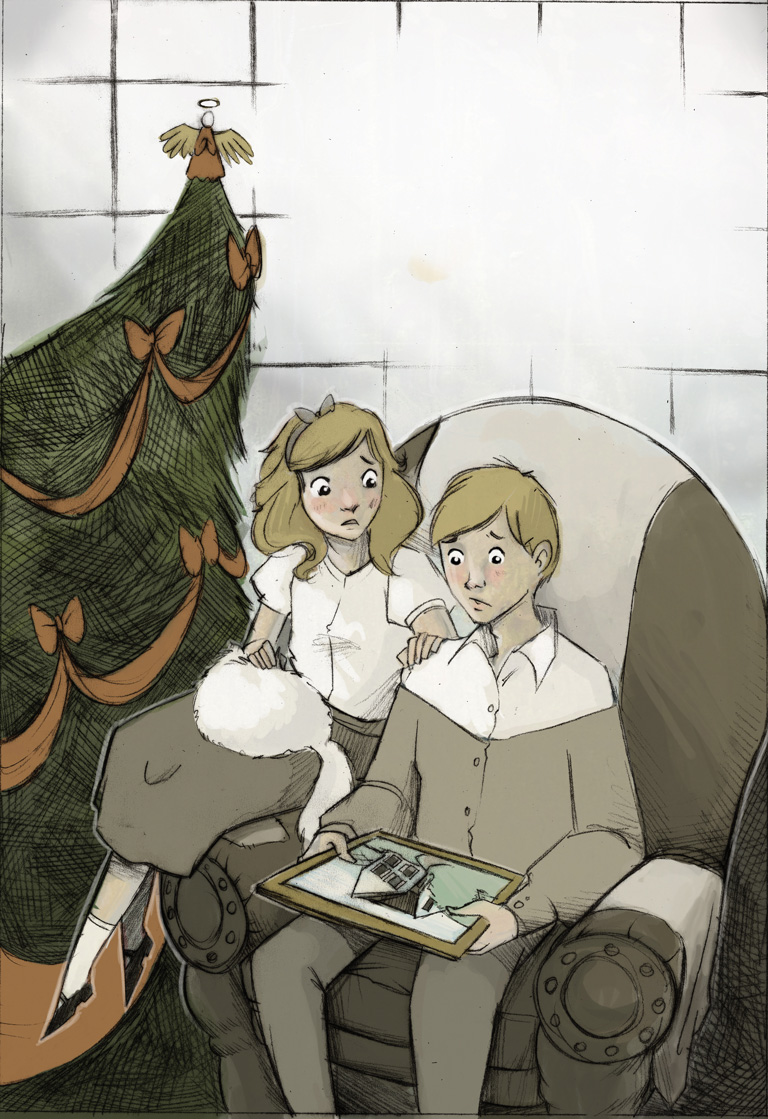
It was Christmas Day, 1942. We walked back to the apartment single file along the snowy sidewalk, shoulders slouched, eyes on our feet. Dad first, then Mum, then me, then my sister, Shirley. Four miserable newcomers to the big city of Montreal.
We had just attended Christmas service in an unfamiliar church. The war news from the pulpit had not helped to lift our spirits.
Shirley bumped into me when we stopped for a light. I gave her a shove and a glare.
“Sorry,” she said. “I ... I just closed my eyes for a few seconds.”
“That was stupid.”
“I was trying to imagine that we were walking up the path to the farmhouse door.”
“Did it work?” I asked curiously.
“No,” said Shirley. “Too much noise here.”
“That’s for sure,” I said, trying to sound a little kinder.
We hurried to catch up to our parents, who were waiting at the entrance of the apartment building. Inside were six front doors, identical except for the numbers. Number two was where we lived, but I refused to call it home. We had our own furniture and a decorated tree, but the apartment still seemed bleak. Even Mum and Dad were unhappy. Christmas dinner was going to be miserable.
“We should have guests for dinner,” I said. “This doesn’t feel right.”
“But both of your cousins are overseas,” said Mum. “And Aunt Jane and Uncle Josh are spending Christmas with Laura and her family.”
“I know that,” I said. “But we usually invite other people, too, not just the relatives.”
“Remember the time we invited Old Jack because we thought he was alone?” asked Shirley.
Mum laughed. “I’ll never forget it,” she said. “He showed up with his daughter and her six kids! We had to cram seven more people around the table!”
The memory brought laughter, then silence. We turned from one another, each of us wrapped in our own sad thoughts.
A Bright Idea
Dad forced us back to the present. “Dinner guests or no dinner guests, it still bothers me that this tree isn’t straight.”
“It’s because the trunk is crooked,” I said. “If we’d brought a tree from home instead of getting one here in the city, it would’ve been straight as an arrow.”
“The city is home now,” Dad reminded me.
“Then how come I’m homesick,” Shirley muttered.
“Alan,” Dad said, ignoring poor Shirley, “let’s fix this. Grab the tree and I’ll tell you which way to move it.”
I leaned across the prickly boughs and moved the tree slightly to the left.
“No, no, no,” said Dad. “Move it to the right, not the left.”
I gave the trunk a swift kick to the right. An earsplitting yowl filled the air, and our cat, Scruffy, leapt out from the heart of the tree! I fell over backwards, and the tree, with all its ornaments, came down on top of me. A terrified cat decorated one of my shoulders and a Christmas angel swayed on the other.
As we tried to restore some order to the room, Shirley tenderly straightened out the angel’s wings. “This was a present from Ted,” she said quietly.
Ted was in the English Fleet Air Arm. He and his mates had been sent to Canada to be trained away from the bombing. We had been his away-from-home family. Until we’d moved, he’d spent all his free weekends with us. And the previous Christmas holiday.
“That gives me an idea!” I said. “Maybe we could ask a few servicemen to dinner!”
“And where would we find them? They’re not exactly marching past our front door,” Shirley said sarcastically.
“You could try Windsor Station,” Dad suggested. “Maybe some young fellows are waiting out the night for trains.”
“May I go with Alan?” Shirley asked. “It’s not dark yet, and I’ll even hold his hand if I have to.” said Mum. “You can take the streetcar down.”
Extending An Invitation
“It’s starting to snow,” said Shirley, sticking her tongue out and holding her head back as we ran to catch an approaching streetcar.
The driver was singing “Jingle Bells.” He seemed in a very jolly mood for someone working on Christmas Day.“ And where are you young people off to?” he asked.
We explained our plan.
“Well, good luck to you,” he said. Then, when we reached Windsor Station, the driver proposed a plan of his own. “I’ll tell you what. I turn around just past the station. I’ll wait a few minutes on my way back and then chauffeur you home — hopefully with your special guests.”
We agreed and went inside.
The station seemed empty at first. Then I spotted them. A sailor and a soldier hunched over in the corner, reading a newspaper.
“Look! Over there!”
Shirley stood rooted to the spot. I felt pretty shy myself, but we’d gone this far. “Come on, Shirl, we can do it.”
Gathering our nerve, we marched right up to them and issued the invitation. Without hesitation, they accepted.
“My name is Bob,” said the sailor. “And this is Edward.” Edward had dark rings under sad, tired eyes. He nodded but didn’t speak.
The streetcar was waiting. Not only did our driver refuse to let us pay, but he acted as tour guide as well.
“If it wasn’t snowing,” he said, pointing to the right, “you would see Mount Royal up there. There’s a beautiful park on top. A perfect spot for skiing, tobogganing, or skating.”
“Sounds nice,” I whispered to Shirley. We pressed our noses against the window. Everything seemed so peaceful and beautiful in the gently falling snow.
A Perfect Evening
When we arrived at the apartment, I noticed a big green wreath on our door. It hadn’t been there before ... or had it?
Mum and Dad greeted our guests warmly, and Edward’s face lit up as he looked around our small living room. “Oh this is wonderful!” he said. “A real home. It’s been so long.”
“And where is home for the two of you?” Mum asked once we had our coats off and warm cocoa in our hands.
“I’m from a small town in the interior of British Columbia,” said Bob. “Edward is from Regina. We should have made it home for Christmas, but our ship had to take a longer route to avoid those submarines.”
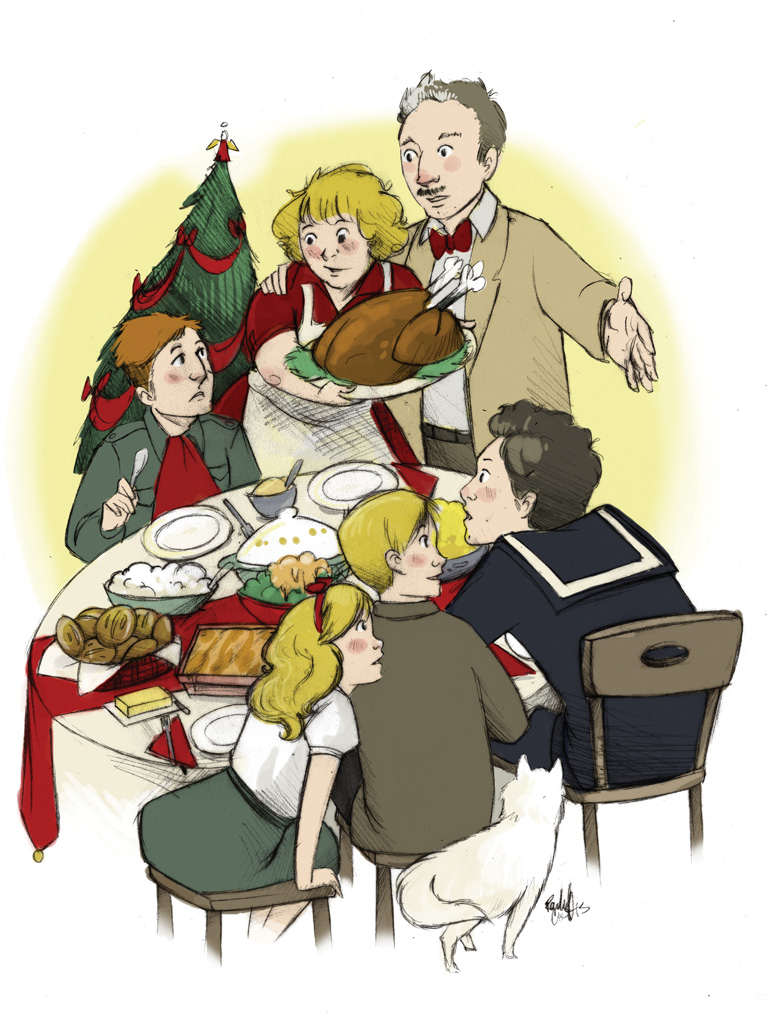
Dinner was delicious. Despite war rationing, Mum had managed to prepare an amazing feast. We toasted faraway friends.
Bob raised his glass. “And a special toast to my bride,” he said. “Nan and I married just before I went overseas.” He turned his glass in a circle, looking thoughtful. “This Christmas was to be our first together.”
Edward rose to his feet. “You’ll be with them before you know it, Bob,” he said.
“And now, a toast to our hosts. Thank you for your hospitality. We may not be with our own families, but we certainly feel at home here. Home in Canada, safe and sound.”
We shared stories of past Christmases. Shirley told the men about our Christmas with Old Jack and his enormous family. Bob and Edward laughed, and we laughed with them. As we finished our dessert, we noticed that Edward was nodding off.
“Edward,” said Mum. “Your train doesn’t leave until 5:00 a.m. Would you like to sleep here for a few hours?”
“I’d love a lie-down,” he said. “I apologize for fading, but I seem to have finally relaxed!”
I took him to my room. When I came back, I noticed how happy my family looked. Perhaps it was just the candlelight, but their faces seemed to be glowing. “Edward was asleep before his head hit the pillow!” I told them.
“Excellent,” said Bob.
“He had a hard time over there, did he?” Dad asked.
Bob nodded solemnly.
Shirley and Mum went to bed, but I sat up with Bob and Dad. As I listened to Bob’s tales of war, my problems suddenly seemed petty. I looked around the new apartment and realized that it was my home. After all, I was safe and secure, and I was with the people I loved. This, I finally understood, was what home was all about.
Christmas on the Homefront

Christmas is meant to be a happy time. A time for family and friends to gather together at home and celebrate the season. But during World Wars I and II, Christmas was a difficult, sad time for many Canadian families. For starters, food was rationed, making it tough to cook holiday goodies and meals. But more importantly, loved ones were often absent, fighting overseas. It was hard to celebrate when family member were so far from home and in grave danger.
Even when soldiers returned home, celebrating the holidays was still hard. Many men and women had trouble adjusting to "normal" life after being at war.
Themes associated with this article
Advertisement

